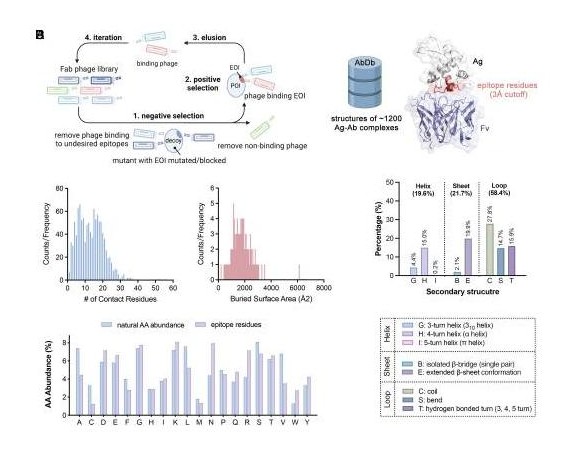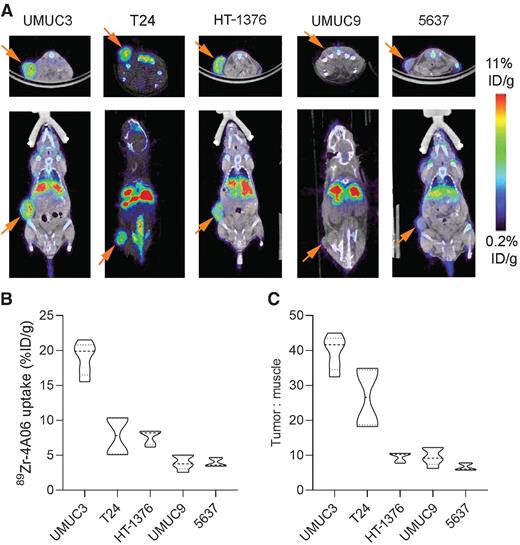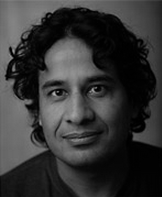About the RAN
The Recombinant Antibody Network is an international consortium of three expert centers at the University of Chicago, University of Toronto, and the University of California at San Francisco (UCSF) unified under a common set of goals, technologies, and operational procedures.
The multi-site rAB generation and validation approach has many advantages, including:
Each site brings an extensive and varied set of skills to the RAN operation.
While each site has some overlapping functions, such as phage display selection and rAB validation, the strength of the distributive model is that tasks can be divided up to exploit the unique capabilities available at each center, which can then multitask in parallel. Thus, the organization of the RAN sites has a built-in flexibility that allows it to readily respond to new challenges.
Developing and evaluating multiple approaches for phage display selections and validation.
In parallel with high-throughput (HTP) production of quality rABs, the RAN sites are working as a team to develop and evaluate new methods and techniques to optimize the functionality and efficiency of the HTP pipeline. For example, RAN has recently evaluated the attributes and deficiencies of different antigen affinity tags, in parallel with exploring alternative methods for antigen supply, including modern in vitro translation and transcription (IVTT) and yeast display techniques. Importantly, several methods for evaluating specificity and affinity have also been worked on in parallel.
Designing various robotic platforms will allow us to arrive at a better optimum than if only one or two centers were under development.
All three RAN sites are developing robotic platforms, which will operate together to allow the processing of hundreds of antigens each month followed by rapid large scale validation of rABs. Chicago’s robotic platform has been fully assembled and is being used for method validation and routine operations. Fully integrated robotic systems at Toronto and UCSF are expected to be up and running within the next six months.
Leveraging resources across the three sites.
The RAN groups have multiple major grants that have been instrumental in building the infrastructure that directly supports the Protein Capture Project.
As a consequence of our philosophy of continual evolution and optimization, we see areas where further enhancements can be made with modest investments in instrumentation to make the system the prototype for what will be needed to undertake large initiatives like the NIH Affinity Capture Reagent project. Our proposed pipeline infrastructure has a modular architecture designed in such a way that it can be replicated at other institutions. We believe that multiple expert centers connect by technology and purpose is the most effective model to tackle the proteome. The organizational structure of the RAN network exemplifies the adage “the whole is greater than the sum of its parts”.


Members

Dr. Sachdev Sidhu
Dr. Sidhu joined the Donnelly Centre at the University of Toronto in 2008 after ten years as a principal investigator in the Department of Protein Engineering at Genentech, Inc. Genentech is the leading biotechnology company in the world and is renowned for developing technologies that have enabled the success of antibody drugs in oncology. Within this competitive and innovative environment, the Sidhu lab was at the forefront of new technology development and Dr. Sidhu was personally responsible for leading the development of phage-displayed synthetic antibody libraries. Thus Dr. Sidhu has extensive biotechnology experience and concomitant expertise in commercialization of new reagents and technologies.

Dr. James Wells
James A. Wells, PhD, is a professor and chair of the Department of Pharmaceutical Chemistry in the UCSF School of Pharmacy, and a professor in the Department of Cellular & Molecular Pharmacology in the School of Medicine. Dr. Wells was the founding scientist in Genentech’s Protein Engineering Department, where the Wells group was the first to develop protein phage display, and developed both naive and affinity maturation technologies on two-chain Fab formats. Dr. Wells later co-founded Sunesis Pharmaceuticals, where his team developed novel technologies for fragment-based drug discovery, notably Tethering. At UCSF, the Wells lab focuses on developing engineered enzymes and small molecules to interrogate signaling pathways that drive regulated cell death. Dr. Wells is also the director of the Small Molecule Discovery Center at UCSF, a core facility that offers UCSF researchers access to modern small molecule discovery technologies including high-throughput screening, fragment-based drug discovery, and hit-to-lead medicinal chemistry.

Dr. Anthony Kossiakoff
Anthony Kossiakoff is the Otho S.A. Sprague Professor in the Department of Biochemistry and Molecular Biology at the University of Chicago. The Kossiakoff group’s focus is on understanding the structural basis and molecular mechanisms that govern biological processes. Dr. Kossiakoff was a Senior Biophysicist at Brookhaven National Laboratory from 1975 to 1983. In 1983 he moved to Genentech, Inc. to help establish the Protein Engineering Department and acted as its Director for 15 years. He was also an Adjunct Professor in the Department of Pharmaceutical Chemistry at UCSF during that time. In 1998, he was recruited to the University of Chicago to be Chair of the Department of Biochemistry and Molecular Biology. He also served as the Director of the Institute for Biophysical Dynamics. Dr. Kossiakoff is the PI of the NIH sponsored Chaperone-Enabled Biology and Structure Center and the Recombinant Antibody Network.
